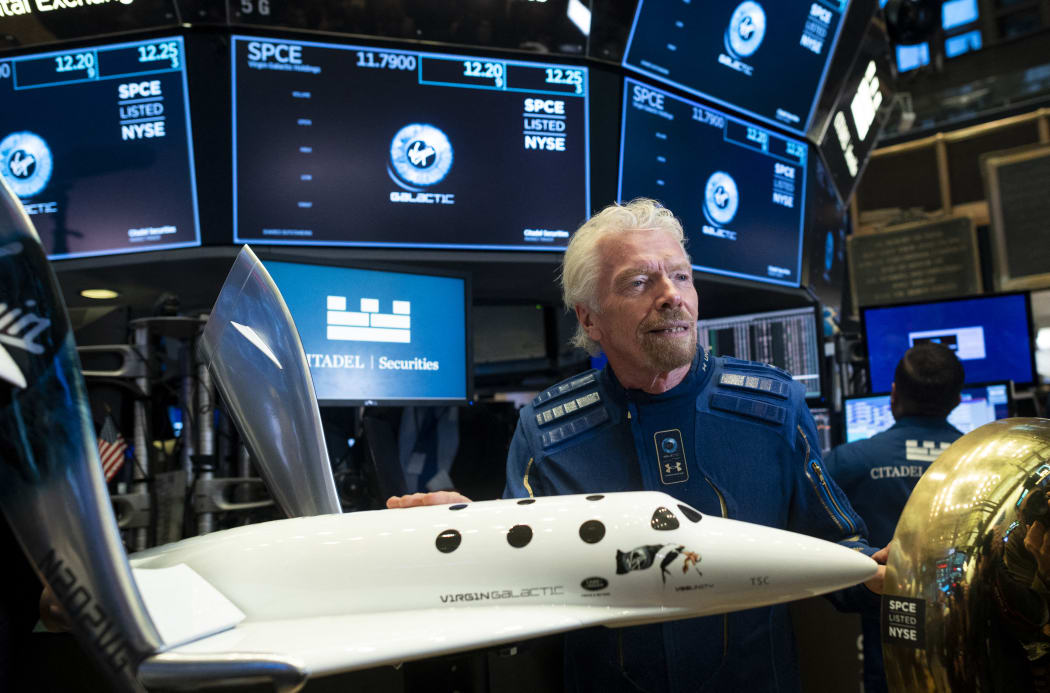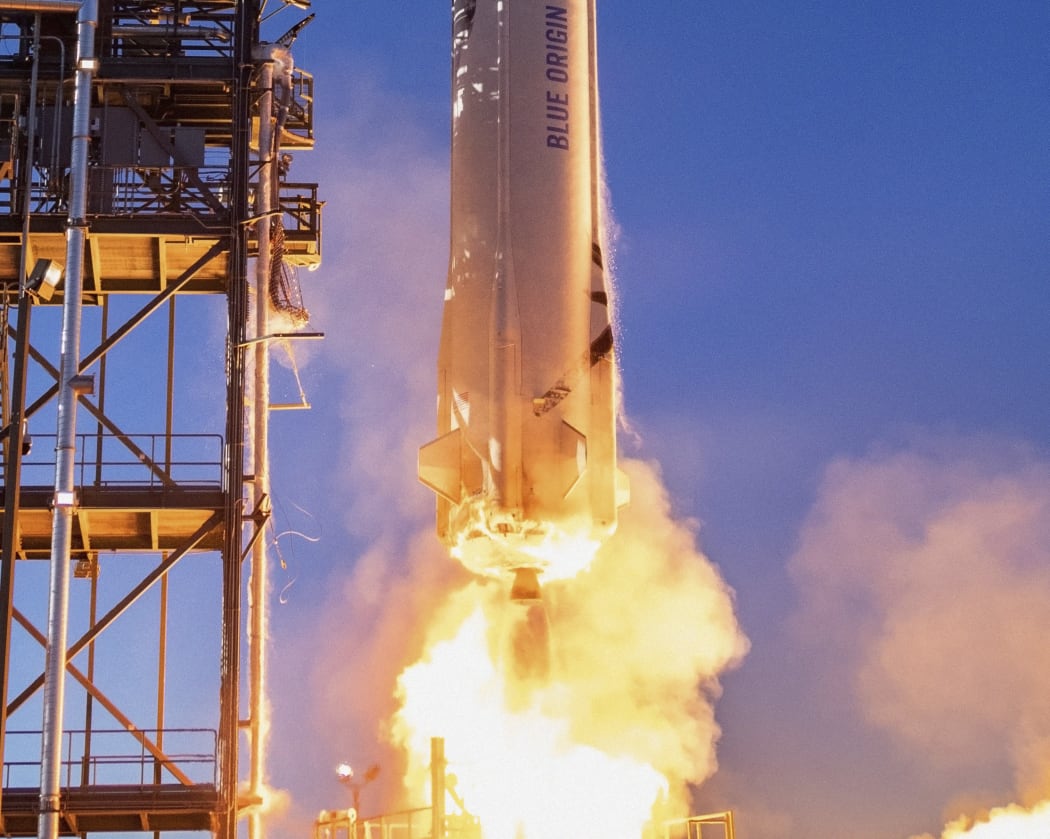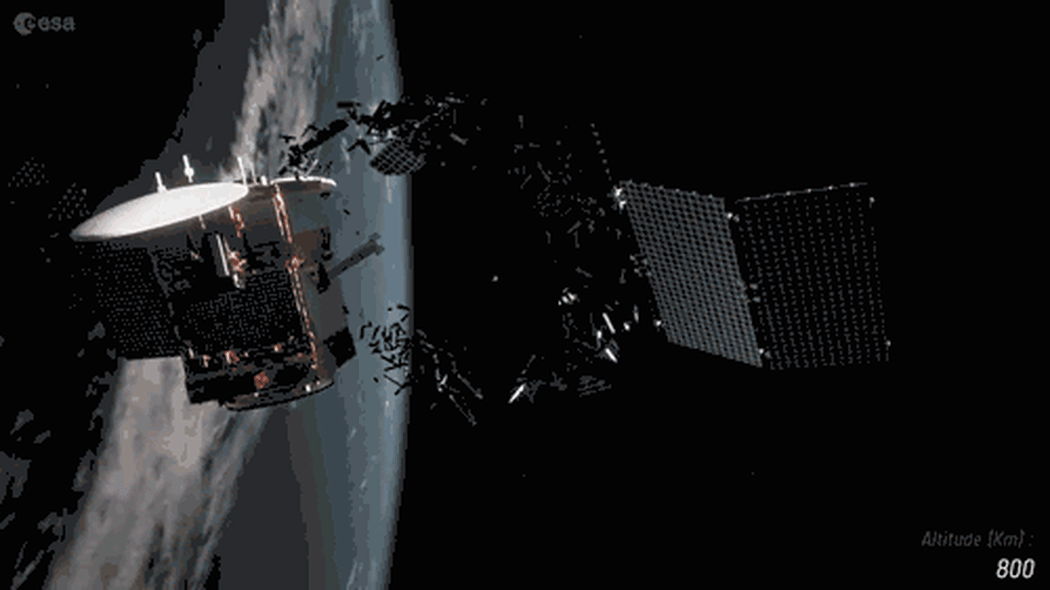The space race in the 20th century between the Soviets and the Americans was a competition to assert the respective super powers as the ideological, political and economic powers of the world. Now to some extent it's a battle between billionaires.
More than 5000 people have bid more than $3 million in auction for a seat on New Shepard, the rocket being developed by Amazon's Jeff Bezos and his space company Blue Origin.
Bezos and fellow billionaire Richard Branson are offering 90min "joyrides [into space] for the extremely wealthy", says Dr Cassandra Steer, who specialises in space law and space policy at Australian National University College of Law.

Richard Branson, Founder of Virgin Galactic poses before ringing the First Trade Bell to commemorate the Virgin Galactic's first day of trading on the New York Stock Exchange Photo: AFP or licensors
"Richard Branson's flights with Virgin Galactic have sold for $250,000, they haven't even flown yet and by the time they start flying they'll be charging a lot more for their tickets.
Elon Musk's SpaceX are doing something more interesting, Steer says. They're shuttling astronauts to the international space station. Next year they'll fly the first all civilian, all commercial crew - three men who have paid $55 million each for the privilege.
"Space is just another domain, or another area where our geopolitics and our economics are being played out," Steer says.
"Today, commercial entities very much run our international economy, they impact our international politics. They're also impacting what's going on in space."
The advantage they have is that they're self-funded. Not needing to answer to the public about the taxpayer's money they're able to test things out faster, break things and learn from it, she says.
There's still an element of international competition though, she says.

Jeff Bezos will send humans into space for the first time on July 20, for a journey of a few minutes in zero gravity aboard his New Shepard rocket. Photo: AFP or licensors
While Branson says he wants to democratise space, Steer says she doesn't buy it - she, for one, literally can't afford to buy a ticket.
Billionaires aren't opening space up to more people, they're limiting it to an elite group of wealthy people, she says.
"There's also something I find concerning about the whole rhetoric of it's our manifest destiny to be expanding into space, this is increasing accessibility. In fact, it's not.
"The 1967 Out of Space treaty is like our cornerstone for space law, it's kind of like a constitution for space because it sets down the principles and values which still apply, which say things like no state can own anything in space, no country can claim sovereignty in space and all activities in space are supposed to be for the benefit of all humankind."
There is a guaranteed right of access to space for all countries, she says, but all countries haven't had access because they're locked out by those that do.
It's expected to be a while before the first rocket "joyride" launches, but Steer says there's already a massive problem with traffic and environmental waste in space. There are about 3500 operating satellites orbiting the Earth and 128 million pieces of debris out in space - orbiting 7km a second, she says.

Space debris hitting a satellite
Photo: ESA, CC BY-SA 3.0-IGO
"As soon as we add human flight through all of that there's huge problems of safety and security."
And, she suspects without sufficient rules governing these matters, it will take loss of human life before we realise regulation is needed.
Steer won't be an early adopter of space travel; she says the risks are just too great.
"I do think we'll get there but I'm not going to be one of the first."

